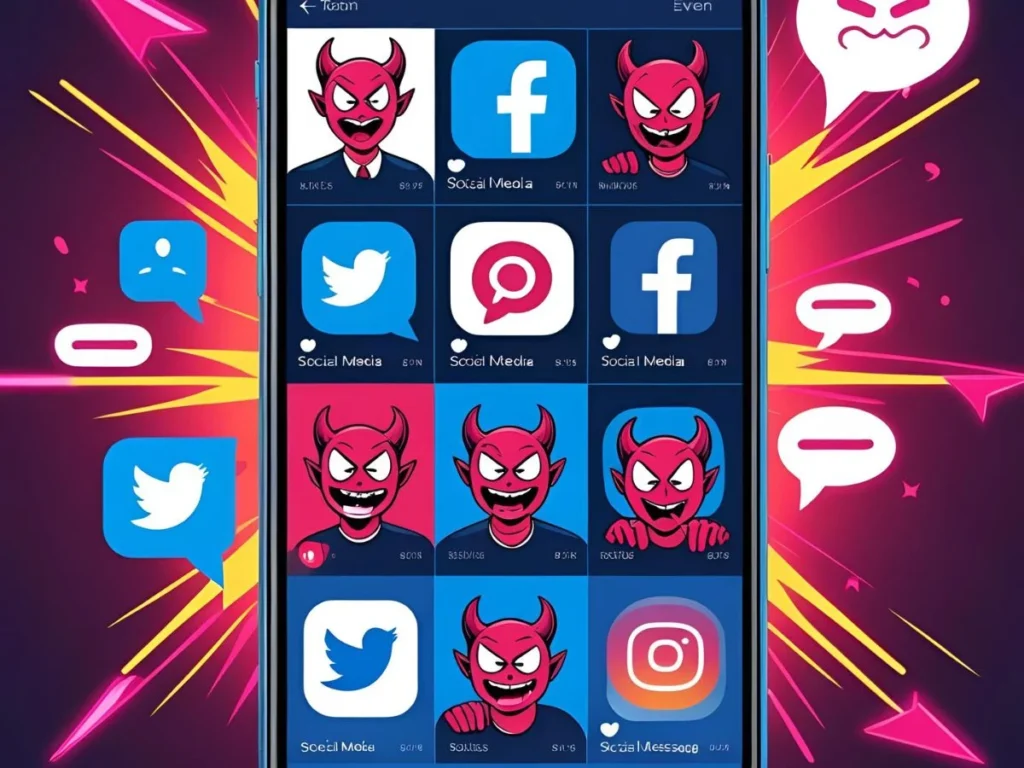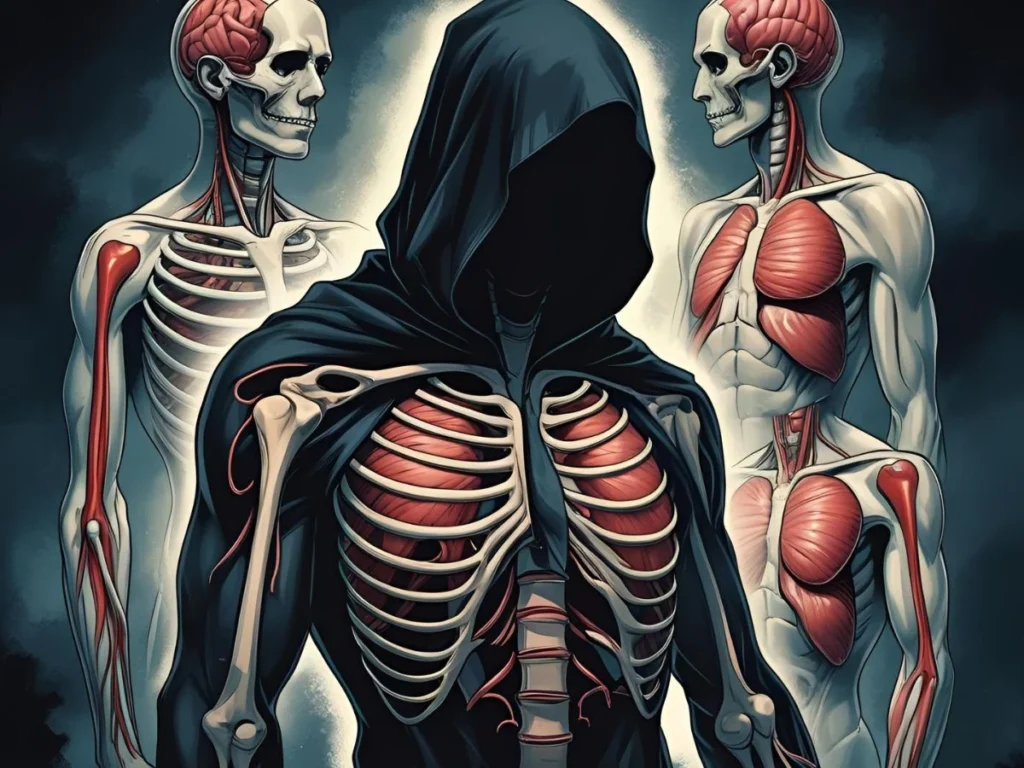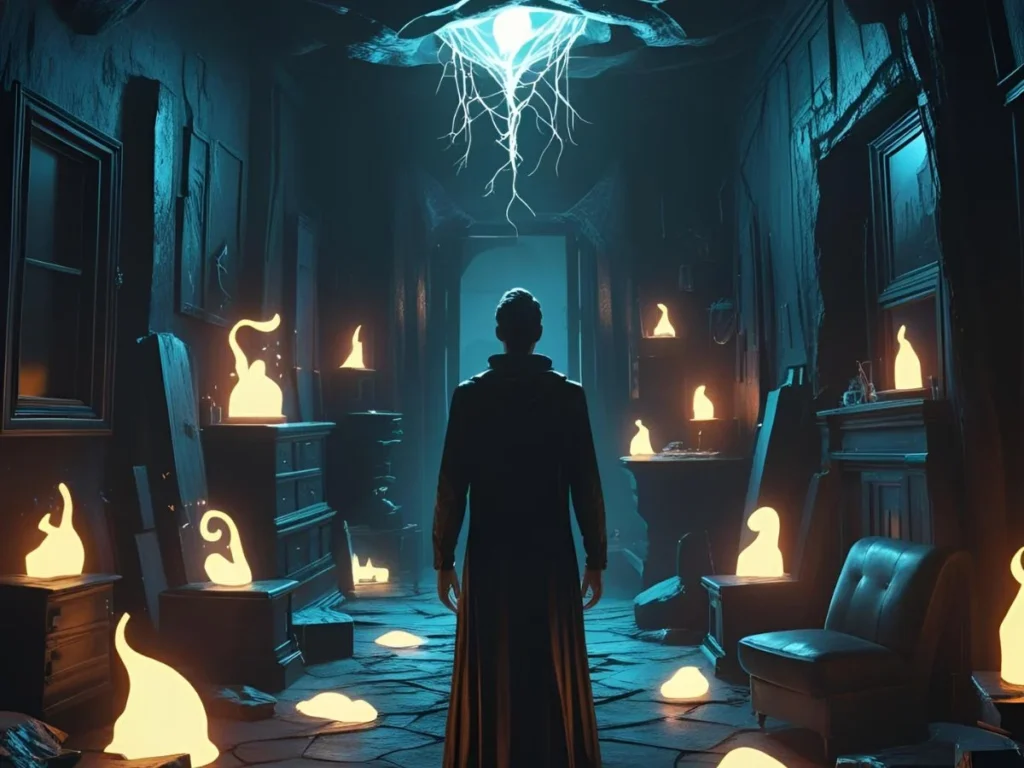You might’ve seen someone call a plan diabolical or scroll past a meme using the word and wondered what it really means. The word carries a strong punch, hinting at something evil or wicked, yet it’s used in all sorts of settings—from horror movies to TikTok roasts.
Thank you for reading this post, don't forget to subscribe!Whether it’s in online slang, literary discussions, or niche fields like medicine or aircraft design, understanding the diabolical meaning helps make sense of how language shifts across platforms and professions.
This guide breaks it all down—from basic definitions to cultural relevance. It’s not just about dictionaries; it’s about how people actually use it. If you’ve ever paused to ask, “Did they really mean something evil… or just clever and sneaky?”—this is for you.
Meaning & Definition

At its core, diabolical is an adjective derived from the word diablo, which is Latin for devil. Therefore, the literal diabolical meaning refers to something so wicked, cruel, or malevolent that it seems devil-like in nature.
Standard dictionary definition:
“Relating to or characteristic of the devil; extremely evil or cruel.”
Over time, however, its usage has expanded. It’s no longer just about satanic imagery; people often use it in casual ways to describe a devious plan, a cunning joke, or even a very difficult task. So, while the root of the word is serious, its tone can vary based on context.
Background
The word diabolical has deep historical roots. Originating from the Late Latin diabolicus, and earlier from the Greek diabolos meaning “slanderer” or “accuser,” it was closely tied to religious concepts of evil and sin. In early Christian literature, the term was often used to describe the devil or any demonic behavior.
In literature and early modern English, diabolical was reserved for actions or individuals seen as profoundly evil—think villains in Shakespeare’s plays or Biblical antagonists. Over the centuries, it filtered into common usage, moving beyond religious texts to describe criminal minds, ruthless plans, or even just really bad weather.
As language evolved, the diabolical meaning began to shift from being strictly evil to encompassing anything mischievous, ingenious, or dramatically negative. In modern usage, context matters more than literal definition.
Usage in Different Contexts
Everyday Speech:
People might say:
- “That exam was diabolical!”
- “He came up with a diabolical prank.”
Here, the word often conveys severity, trickiness, or cruel humor—not necessarily pure evil.
In Movies and TV:
Villains often have diabolical plans. Think of a character who creates a grand scheme to control the world—it’s brilliant but terrifying.
Professional Settings:
In journalism or political commentary, the term may be used to describe particularly harmful policies or events:
- “The regime carried out a diabolical strategy against dissenters.”
Internet and Pop Culture:
It’s often used humorously, sarcastically, or dramatically:
- “Her diabolical plan to eat all the cookies before her siblings woke up actually worked.”
This semantic flexibility has helped it stay popular and expressive.
Meaning in Chat, WhatsApp, Instagram, TikTok

On platforms like WhatsApp, Instagram, and TikTok, diabolical often carries a humorous or exaggerated tone. It’s not uncommon to see comments like:
- “That outfit combo is diabolical 😂” (Translation: It’s a disaster—but funny!)
- “This filter makes my face look diabolical 😭”
- “Bro, that prank was lowkey diabolical.”
In chat, it’s often used to describe something:
- Clever but shady
- Funny but evil
- Horrible in a dramatic way
Emoji pairings: 🐍🔥😈 are common with the word to show playful wickedness. In this space, diabolical leans more toward meme-worthy mischief than literal evil.
Meaning in Physics, Medical, and Aircraft Terminology

Although rare, the word diabolical occasionally appears in professional domains, often metaphorically:
Physics:
It may describe a particularly complex, unsolvable, or misleading problem:
- “This paradox is diabolical in its setup.” (meaning: hard to resolve and tricky)
Medical:
Used in narratives or discussions, especially when describing diseases or conditions that are:
- Extremely aggressive
- Unusually deceptive in symptoms
Example: “The disease presented in a diabolical way, mimicking several other conditions.”
Aircraft or Engineering:
Engineers might refer to design flaws or hazards as diabolical if they’re hidden and dangerous, especially if discovered late in the process.
While not technical jargon, its metaphorical use emphasizes deceptive complexity or unexpected danger.
Common Misconceptions

- It always means “devil-related.”
— False. While it originates from that, modern use is much broader. - It can’t be funny.
— Wrong. It’s often used in jokes and memes. - Only serious villains are described as diabolical.
— Not true. Even someone who takes the last slice of pizza might be called “diabolical” for laughs. - It’s outdated.
— Not at all. It’s alive and well across social media and pop culture.
Understanding these misconceptions helps prevent overreaction or confusion when someone casually drops the word in a message.
Similar Terms & Alternatives
If you’re looking for synonyms or alternatives to diabolical, consider these:
- Sinister – Dark and possibly harmful
- Malevolent – Intending harm
- Devious – Sneaky or underhanded
- Cunning – Clever but often dishonest
- Wicked – Bad, but also used playfully (“wicked cool!”)
- Evil – More direct and heavier in tone
Each of these has its nuance. “Diabolical” adds a theatrical flair that not all alternatives carry.
How to Respond to It
If someone calls you or your idea diabolical, how you reply depends on the tone:
- Playful Use:
“You’re diabolical for hiding the cookies!”
→ Response: “Guilty as charged 😈” - Serious Use:
“That was a diabolical decision.”
→ Response: “Let’s unpack why you feel that way.” - Sarcastic Use Online:
“Your playlist is diabolical.”
→ Response: “Then you clearly don’t understand true art 😎”
Don’t take offense unless the tone is clearly negative. Most of the time, it’s exaggerated fun.
Differences from Similar Words
| Term | Connotation | Humor-Friendly? | Root Meaning |
|---|---|---|---|
| Diabolical | Evil, sneaky | Yes | Devil |
| Devious | Dishonest | Sometimes | Latin: “out of way” |
| Evil | Pure malice | Rarely | Old English: “bad” |
| Sinister | Ominous | Occasionally | Latin: “left” |
While “evil” is blunt and harsh, diabolical feels more playful or dramatic. It’s often theatrical, not literal.
Relevance in Online Conversations & Dating Apps

In the age of wit and memes, diabolical has found new life in online dating and DMs:
- “She ghosted me in the most diabolical way possible.”
- “That text was a diabolical trap… and I fell for it.”
On dating apps like Tinder or Bumble, it can be used to highlight playful cleverness:
- “Swipe right if your sense of humor is delightfully diabolical.”
It adds flair without sounding overly harsh. In digital flirtation or storytelling, it amplifies drama in a humorous way—perfect for today’s hyper-expressive digital language.
Conclusion
The word diabolical carries centuries of history, but it’s more versatile now than ever. From literal evil in ancient texts to playful jabs on TikTok, it has morphed into a term that fits serious discussions, professional jargon, and modern slang alike.
Understanding the diabolical meaning helps decode online chats, recognize sarcasm, and appreciate the full flavor of how language evolves. Whether you hear it in a movie, a text, or during a heated debate, now you’ll know what it means—and what it really means underneath.
It’s wickedly interesting. Maybe even… diabolical.




